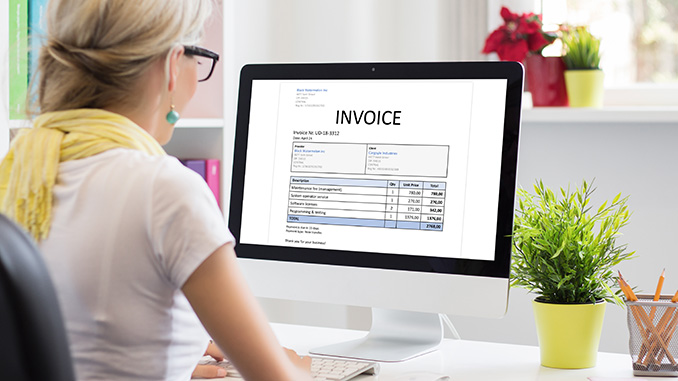
As all industry consultants know, factors finance the businesses of their clients by purchasing invoices. They do not provide traditional business loans as offered by commercial banks. Factors simply buy invoices from their clients which are due and payable by their client’s customers at a future date, so that the cash represented by those invoices can be freed up and put to use NOW! Factoring is a very simple method of commercial finance which allows a business owner to comfortably grant 30-75 day terms of payment upon invoices to customers, yet get paid for those very same invoices immediately. Factors, in a sense, are nothing more that professional “waiters”. But they don’t wait on tables. They wait on payments from the customers of their clients and earn a fee (the factoring fee) for doing so.
Factoring: A Paper Business
So factoring is a “paper” business. Unlike many business lenders that enjoy hard collateral such as inventory or equipment, which can be sold off in the event of a default by the borrower, factors simply purchase a piece of paper (an invoice), which represent a arrangement for payment between two businesses (B2B). If signed off by both parties evidencing delivery of acceptable goods or services (verification), an invoice technically becomes a legal document. And, although some modern factoring niches, such as real estate commission factoring, break the “business-to-business” trade rule, virtually all true factoring arrangements are based upon B2B sales only and are not consumer related.
So if factoring is simply the purchaser of an invoice, the question arises…”What kind of an invoice?” Is there actually more than one kind of invoice?
7 Unacceptable Types of Invoices for Factoring
The answer to that question is definitely “yes”, and if you are new to the brokering industry, here are a few things you need to know about invoices. While most standard “trade” invoices can readily be purchased be a factor, the following types of invoices are most often “non-factorable”, and will typically NOT be accepted for financing.
- DELINQUENT DEBT: Factors are not buyers of delinquent debt. As a commercial finance consultant (factoring broker), you will certainly find yourself receiving the occasional call from a prospect that wants to sell a few invoices that are “aged” and in question of being collected. Such overdue invoices are not acceptable for factoring, but, this may still be a prospective client for you. It may simply not be a factoring client. Refer such clients as this to a firm that specializes in delinquent debt collection that accepts brokered referrals (and will pay a referral fee). If the non-payment of the delinquent invoices is causing the client to have a cash flow problem, approach him/her with the possibility of factoring the company’s non-delinquent invoices.
- CONSIGNMENT INVOICES: Goods that are sent to a customer that will use it’s “best efforts” to resell the goods and will then pay for that portion of goods resold are termed consignment invoices. An example of this would be an invoice from a manufacturer that sells to a broadcast marketer such as those seen on television. Goods that are sold are paid for. Those not sold are shipped back to the manufacturer / distributor. An invoice for those goods actually sold may likely be factored. As a commercial finance consultant, you should know the difference.
- PRE-SHIP INVOICES: Pre-ship invoices are invoices generated by a client that represent work that is yet to be performed or goods yet to be delivered. Since the customer has received no benefit from the goods or services promised by the invoice, the customer obviously also has no obligation to pay.
- OVER-AGED INVOICES: Invoices that are aged beyond 75-90 days are typically declined by a factor. Though many large companies, such as “big box” stores, routinely pay invoices in 60 days or longer and these invoices may be acceptable, such over-aged invoices can also often reflect a customer in financial distress.
- SUBJECT TO LIEN: Invoices subject to lien, such as those found in the construction industry, where a general contractor’s invoices might be subject to a mechanic’s lien from a sub-contractor or the invoices of a business where a federal tax lien is evident, are typically not acceptable to a factor. Be aware, however, business owners that have tax liens present can often become good clients if that tax lien is small and can be satisfied by the factor’s first advance or where the factor can enter into a subordination agreement with the I.R.S. Do not discard such prospects. Virtually all small business owners would much rather work with a factor, rather than dealing with the collections division of Internal Revenue.
- CONTRAS: This is a unique situation where a factor’s client sells to a customer and the customer also sells back to the factor’s client. Such invoice payments may be subject to “offset” and as such, will not be acceptable to a factor without some agreements in place prohibiting such offset. Contras can sometimes be worked around through contractual agreements.
- CONTINGENT INVOICES: Invoices where the payment is contingent upon the performance of some other service are typically not factorable. For example, an invoice representing the sale and shipment of computer equipment where payment upon that invoice is contingent upon the equipment also being installed, would not be acceptable for financing by a factor until installation has also occurred.
Learning the Hard Way
Most new broker will learn the lessons of “unacceptable invoices” the hard way by submitting a deal to a factor, only have it turned down. But in may cases, such as when liens are present or when contras exist, factors can find ways to eliminate the lien or work around the contra issue. New brokers will quickly find out that factors are in the business to BUY invoices and are “creative masters” when it comes to problem solving. In short, if there is a way to safely finance the transaction, a factor will likely find a way to get it done.
Want to Comment on This Article?
If you have questions or comments regarding this article, post them in the Commercial Finance Consultants Magazine “Comments Section” or on IACFB’s Factoring Broker Support Group on LinkedIn.




